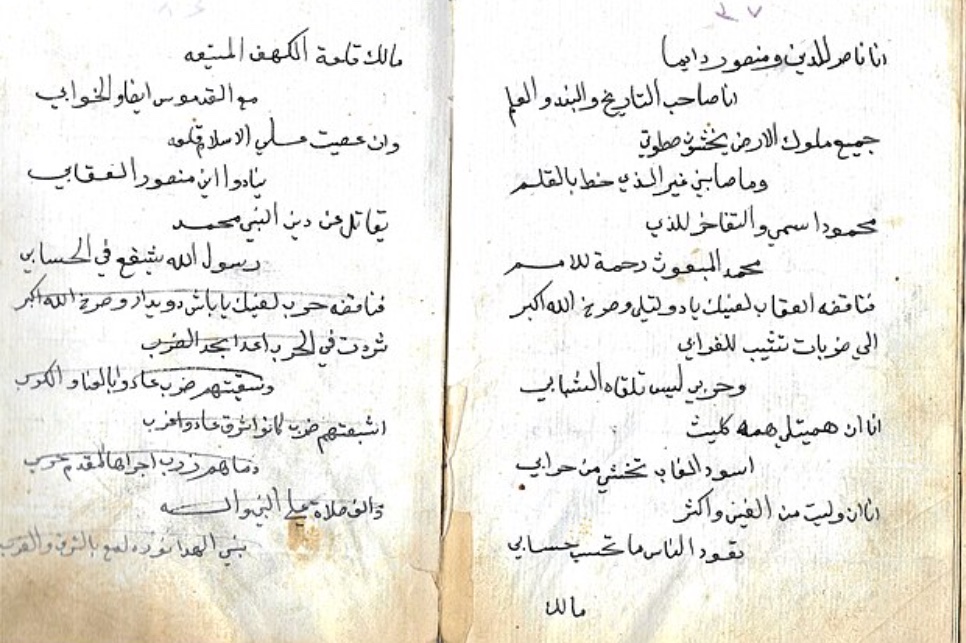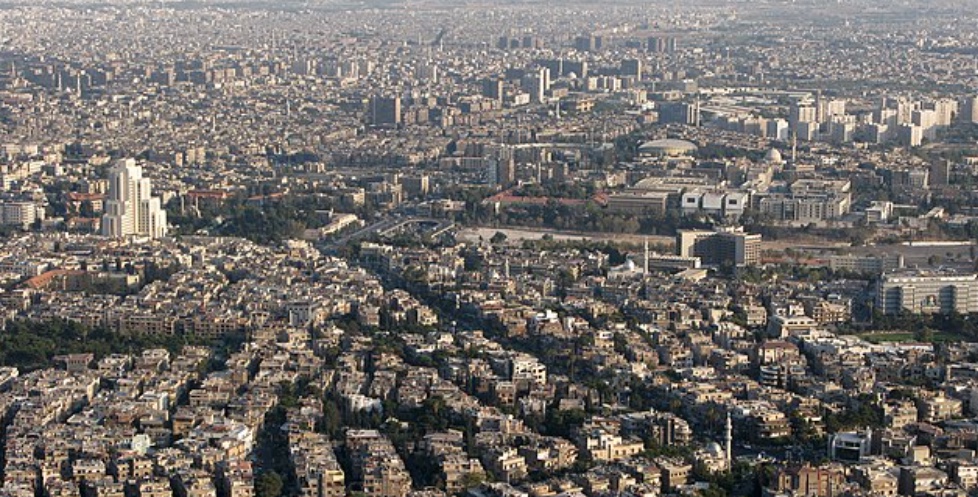Raed Wahesh: Voice of Syrian Suffering and Hope

By: Fedal Hanoun / Arab America Contributing Writer
One of the important voices of his generation is Syrian poet Raed Wahesh, particularly in light of the country’s ongoing wars. Wahesh, who was born in Damascus in the early 1980s, is well-known for his moving, multi-layered poetry that explores the human condition, the effects of conflict, and the unwavering resilience of those who survive it. His art effectively conveys the nuanced terrain of Syrian identity, adversity, and fortitude. Wahesh has gained notoriety as a poet of conscience through his unique style, which combines aspects of surrealism and shocking reality. His lyrics represent the fight of a nation yearning for liberty, identity, and tranquility.
Childhood and Schooling
Wahesh was surrounded by Syria’s rich, millennium-old traditions while growing up in Damascus. He was captivated by the timeless beauty of old towns like Aleppo, but he was also keenly conscious of Syria’s social problems. Later, these contradictions would show themselves in his writing, which frequently strikes a balance between praising Syrian culture and criticizing its political system.
Themes in the Poetry of Wahesh
Wahesh’s poetry is renowned for its keen attention to the human condition in relation to the broader socio political landscape. In addition to exploring themes of identity, grief, and displacement, his verses delve deeply into the mental impacts of war on people as well as communities. Wahesh’s poetry, in particular, frequently addresses the collective trauma that Syrians endured following a catastrophic civil war. Instead of portraying conflict through the prism of political or military plans, he concentrates on the more intimate, smaller difficulties of those who have lost their identity, families that have been ripped apart, and ordinary people who were driven from their homes.
Wahesh depicts the real and symbolic suffering of exile in his 2016 collection Ghazwan, A Body of Sorrow. Every poem is an account of lives that have been removed, friendships that have been stressed, and reputations that have been broken. Any romance is stripped away by his writing’s visceral, raw intensity, which presents an unapologetic depiction of suffering. His writings are not meant to glorify suffering but rather to bear witness to it, enabling readers to experience the agony and resiliency of those ensnared in the fight.
The Poetry of Survival and Exile
Wahesh’s ability to turn his own struggles into universal observations on survival is one of his most renowned poetic traits. Wahesh has personally dealt with being a refugee. Even if they face the harsh fact that home as it once was would never return, his writings on exile are laced with a strong longing for home. A common topic is the yearning for Syria, which is conveyed through representations of well-known streets, aromas, and flavors that are only present in memory. But his writings also touch on a broader sense of exile that many Syrians who have been dispersed throughout the globe have experienced.
Influence and Style
Wahesh’s technique, which combines surrealist imagery with stark realism, enables him to depict both the strange aspects of exile and the cruelty of war. He uses straightforward, frequently rough language and an emotional reality that doesn’t sugarcoat the brutality of battle or the hardships of living as a refugee. However, he also incorporates fleeting moments of surreal beauty, which provide a welcome change of pace in an otherwise depressing setting. His work is extremely compelling due to his vivid and eerie use of metaphor and imagery.
Wahesh has acknowledged that his voice was shaped by both the global literary canon and traditional Arabic poetry. With its emphasis on themes of love, sorrow, and longing, his work has echoes of classical Arabic poetry; nonetheless, he modifies these conventional motifs to speak to modern issues. His poetry has been compared internationally to that of poets like Mahmoud Darwish and Adonis, who also deal with issues of political battle identity and relocation. But thanks to the cultural background of Syria’s ongoing civil conflict and particular hardships of Syrian refugees, Wahesh has established a niche that is all his own.

Conclusion
Raed Wahesh’s poetry will surely be a potent reminder of the high human cost of war and a testimony to the Syrian people’s tenacity in the years to come. Wahesh offers consolation to the displaced and evokes empathy in those who hear his eerie poetry, which maintains the memories of a vanished nation. His writing serves as a reminder of how poetry, even in the most dire circumstances, may convey the core of human pain and endurance.
Check out our blog here!









